Interview with Benjamin Brosdau
Prior to posting the first HOVER ‘making-of’ article by HOVER Grand Prize Winner – Benjamin Brosdau, I present to you an interview with him so you may learn a little bit more about him and his way of work.
Please tell us a little bit about yourself and how you initially became interested in Architectural Visualization? Do you have any formal training in this field?
Well I’m 31 years old and happened to be introduced to the world of CG by means of videogames actually. Thinking about it I think I would also like to broaden the term archviz to something more like environment visualization, that’s what’s really fascinating me the most.
As a matter of fact there are many architects in my family but I would not call this a conscious influence on my path of work, it slowly evolved when I first started dabbling in
3dsmax 3.1 around 10 years back from now I believe. I do not have any formal training in architecture nor in photography, I am 100% self-taught. I remember it was quite a struggle fighting my way through 3dsmax at the beginning, internet was not readily available, and resources were thin at best. That has changed today of course with tons of tutorials and videos.
Do you have any background or interest in traditional art and if so does it help you to make your digital 3d art better?
Nope, I have no background in traditional arts, I also tend to have a slightly more scientific look on the field of CG than a purely artistic one. I guess that is partly related to my job where I do lots of scene optimization and render management. But one could say that through the research of physics and relations between lights and surfaces one can become a better artist, it is certainly something that helped me understand the principles of shading and lighting when I started 3d.
What is your favorite project / render that you have done?
Well, I kind of always like my latest project best although I am rarely entirely satisfied with my works. Something (often a lot) is not quite correct or did not turn out as expected. Then again one has to know when to stop on a project because tweaking things to death can be counterproductive too. I think that images which have been created under a certain amount of pressure and time constraints usually tend to work best.
On what types of projects you like to work best?
I prefer to work on still images more than on animations, and of course I prefer to work on projects where I am in complete control of everything and nothing depends on (for example) a clients decision.
What do you like to do when you are not working?
I am constantly involved in stuff concerning CG but not necessarily archviz stuff. I can quite enjoy working on digital characters too although it’s certainly no specialty of mine.
Outside the CG field I enjoy reading through my extensive library of science fiction novels. I can furthermore be quite passionate about playing games on my PS3, mainly racing games, although the times when I could sit through an 24h shift with a racing wheel or hurling the controller across the room are kind of gone now.
What is your software of choice? Do you use more the one modeling / rendering application in your workflow?
It depends really. At work I use 99% of the time a combination of 3dsmax and VRay, it really is pretty much the default combination for archviz nowadays. Naturally we also use different software besides that, but it pretty much revolves around these two pieces of software.
At home I use mostly 3dsmax as well, but a second noteworthy 3d package that I use often is Softimage XSI (yes I know it’s “Autodesk” Softimage now…) I really like it’s approach to interacting with the software and its organized and clean structure. For rendering I primarily use Maxwell render because I really love the way it does materials and quality in GI for example.
Can you tell us about other tools you can’t do without these days?
Hmm, I believe Mudbox could be named among them and at work we rely heavily on the PSD manager and VRay MultiScatter for example. Also the floor generator together with Multi Texture have more or less become essential.
Photoreal or NPR – where do you stand in this debate?
Absolutely in the photo real corner. It has always been the most fascinating aspect of CG to me to bring digital images to a state where they become indistinguishable from photographs. Depending on the subject that might be very (!) tedious and sometimes even impossible, but it as always great fun to dissect photographic reference images and trying to translate the facets that make them look “real” into digital numbers and formulas to create virtual images from.
Are you a post work or pure render type of artist? (Granted, post work is always needed, but how much remains for you to do in post)
While I would consider myself a “render type” artist, I have absolutely no problem with tweaking the hell out of a rendering in post. It is unbelievable what a matte painter can do with even the blandest looking image. When we are under a lot of pressure at work there is often no alternative to the saying “Fix it in post!”. At home you can run 50 test renderings of the same thing but under professional circumstances in a real large scale production you don’t have that freedom and need to work in a more outcome-driven way.
Do you use GPU based solutions these days? if so, which of them, and how do you find the workflow and benefits vs. the “traditional” way of rendering. if not – why?
So far I am using no GPU based solutions mainly because I have no fitting projects to really take advantage from it. Or, if phrased differently, I have no projects where I am willing to circumvent the many drawbacks and shortcomings that are associated with GPU tech so far.
I have tried out and even own Octane but the process of having to export your stuff to a different app is a deal breaker for me (I believe there are tighter integrations available now, but so far I couldn’t be bothered to try it out).
IRay is integrated rather well into 3dsmax 2011 but it has the same shortcomings. An enormous amount of features are still unavailable for GPU engines until today and being dependent on the GPU RAM radically reduces its field of use for me. I’m not saying it’s bad or unusable but after the dust the marketing department kicked up has settled again, there is precious little left that makes it attractive to me.
The majority of us has invested in CPU power for the past decades so that’s readily available. An investment in GPU hardware at the current unclear situation between CUDA, OpenCL, IRay, VRayRT etc. seems incautious at best. This is only my opinion, it might be totally different for other people having other projects and / or demands of course.
What other artists inspire you?
I am exposed to so many renderings and artists in the archviz field on a daily basis, that it really feels hard to pick among them. Instead I would like to name 2 artists – Nicolas Bouvier and Stephan Martiniere. They have little to do with photorealism or archviz, but left a profound impression on me because of their amazing work and style. The art of concept painting never ceases to amaze me and I can only marvel at their works and imagination.
What do you find most challenging in your daily work?
Oh, there are many challenges, they often (I wonder if this coincidence) have a close relationship to the demands of a client. Seriously though, apart from purely technical issues that can often be addressed by some research and / or optimizations, the artistic ones are the more challenging problems.
How do you keep up to date will all the frequent software updates and plugin additions? Do you even bother yourself with that?
Actually no, I do not bother myself that much with always having to have the latest piece of upgrade or software. It can sometimes even be harmful to your production if you change tools in mid-production since a great many problems are only encountered after a piece of software has been around for a while and users start to send in bug reports or notice strange behavior.
I will only upgrade when an upgrade allows me to do things that have been previously unthinkable or downright impossible or when I actually do need these new features. I also despise the habit of forcing UI and functionality changes on the users without a change of reverting back. Sometimes even well proved functionality gets striped out completely for unknown reasons – a large company starting with the letter “A” is a good example in this regard.
What would you suggest to someone wanting to become part of this industry? What are the essential skills to focus on when one starts?
I regard learning the basics first as crucial. Software has become more and more accessible and learning material is widely and easily available making it easy to dive right into rather complex topics. If you’d be interested in lighting I would still recommend starting with traditional lighting schemes despite the “one click GI” solutions available. Build a foundation first and then improve upon it, it’s also much more rewarding to get simpler
stuff done right than giving up on things that were too complicated in the first place. One major (if not the most important) skill I think, is the ability to carefully observe and be able to translate that into CG. Whether it is a model of a chair or simulating complex fabric dynamics, you should always observe their real world counterparts and decide on what it is that gives them their character.
What do you love about doing what you do? What is your motivation to keep going?
My main motivation comes from always trying to better my previous works and improving on techniques and skills. As I enjoy the part of shading and lighting a lot I also find it very rewarding to give a mood and atmosphere to any previously created sets or models. While I enjoy the modeling part too, I’m always looking forward to the texturing, shading and lighting, in other words giving a character to something previously lifeless.
Do you have any interesting projects going on at the moment?
In fact I do, but so far this information is still classified.
Benjamin, can you tell us a bit more about pure… what is your role in the studio?
I am Technical Director at pure rendering in Berlin. I am mostly working on shading and lighting, also render management together with establishing and maintaining the visual and technical qualities of our images and animations at purerender.
I remember you as the Maxwell Render wizard back in the early days – What do you think of Maxwell Render today?
My opinion has not changed by much since my first renderings back in early 2005. Maxwell Render allows for the most realistic results. I say “allow” on purpose because it’s clearly not the software but the user responsible for the outcome, but providing the correct parameters Maxwell will let it really shine. It would maybe need a tighter integration with the many available plugins for VRay but quality wise there is little left to add. It has very much matured over the years and has many fantastic features but as a natural side effect also greatly increased complexity.
They say “As easy as taking a photo” in the advertisement but taking a good photo is not exactly an easy thing to do in the real world
Benjamin’s HOVER Challenge thread
You are welcome to comment on this article and ask questions using the comment box below!





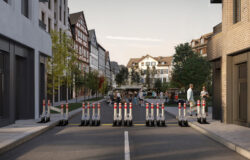


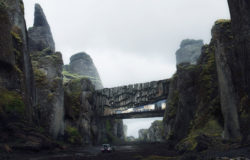


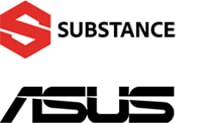







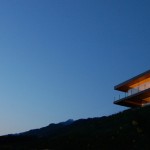
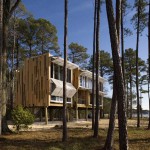
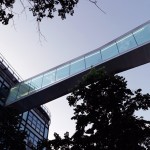

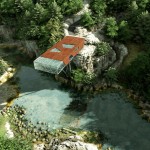
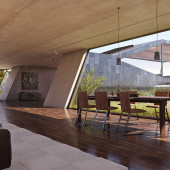
Nice interview, very interesting. I hope one day I’ll become as great artist as Benjamin
Javi.
Great interview.
Best wishes to Benjamin.
Kodissimo
Great interview, top quality renderings!
‘They say As easy as taking a photo in the advertisement but taking a good photo is not exactly an easy thing to do in the real world ’ I like this =)
Great article! looking forward for breakdown of Your entry =) realy nice stuff!
tom
You don’t take a photograph, you make it. ~Ansel Adams
Buying a Nikon doesn’t make you a photographer. It makes you a Nikon owner. ~Author Unknown
😉
amazing interview ,Benjamin is so open mind and i really relief to know that he is a normal as us ^^ …!!
i can’t wait for the tutorial 😉
thanks Ronen for sharing this
cheers for Ben
Thanks for your interview Benjamin. Realyl helpful to read some of your thoughts! Very inspiring.
Nice interview Ben.Love your kitchen rendering btw.
/DIA
Wonderful post BB. Worthy of a winner….keep it up!!!
Ronen, thanks for posting the interview with Mr. Brasdau.
I’m always interested in seeing new work from Mr. Brasdau, and learning more about environment visualization.
Thanks @ everyone!
@ Hussein: Yes… mostly human, still working on this issue though.
Regards,
Benjamin
What a great read, Thanks very much!